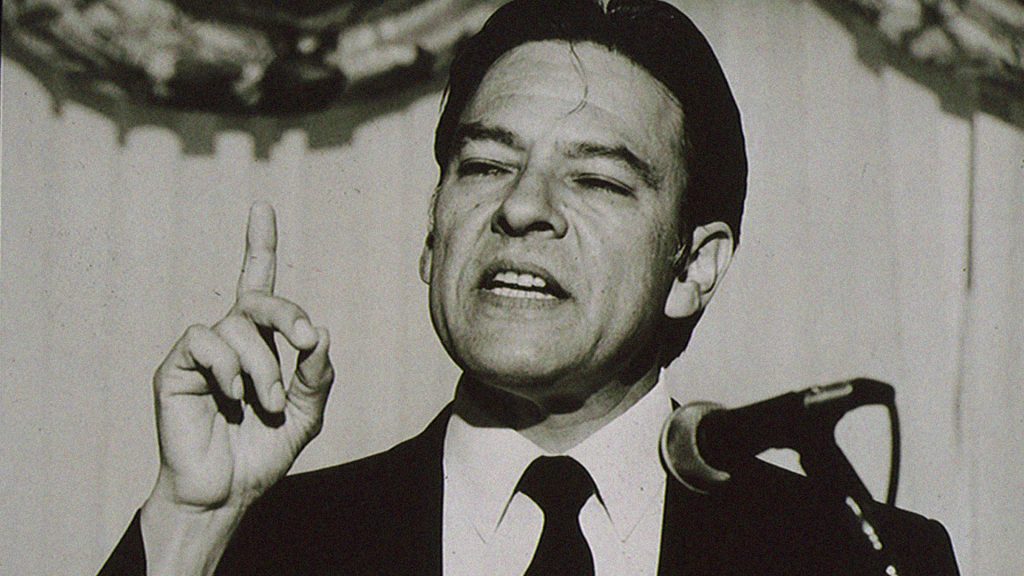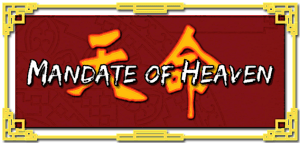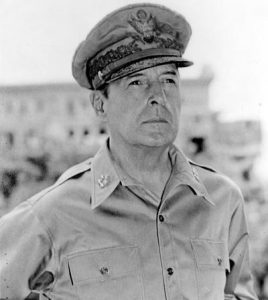For decades, Latinos in the United States did not have a political voice. At the age of twenty-three, Willie Velásquez decided to change this. He worked to ensure the empowerment and participation of Chicanos in U.S. democracy, a project that would become his life’s work. Velásquez’s motivation to educate Latinos showed his commitment to the values of American democracy. As Henry Cisneros, former Latino mayor of San Antonio remembered Velásquez, “[Willie’s] legacy is large in the hearts and minds of those of us who knew and worked with him.”1

Before becoming a Mexican American political activist, Velásquez attended college at St. Mary’s University. In 1967, he and other Latino-Chicano students, known as Los Cinco (The Five), created the Mexican American Youth Organization (MAYO).2 MAYO worked to register Chicano youth to vote, and the group defended farm workers’ rights by becoming one of the anchors of the Chicano Movement. The group popularized the motto Su Voto Es Su Voz (Your Vote is your Voice). They spread their message through local newspapers and city-to-city events to bring other young people into the organization.3
As a St. Mary’s student, Velásquez involved himself in volunteer work, where he began to develop leadership skills, offering a helping hand to others while continuing the Marianist heritage of civic engagement. Velásquez signed up to help farm workers who were on strike because he saw the realities of their conditions and their mistreatment by the Texas Rangers. Conditions worsened for the farm workers as the Texas Rangers continued to make discriminatory arrests, and unreasonable beatings on the strikers escalated. Velásquez decided he needed a big political voice to speak for the farm workers. During his third internship in Washington D.C., Velásquez visited Congressman Henry B. González, who became his first political mentor. González’s vision and passion for helping the voiceless attracted Velásquez to the congressman. He wanted González’s support for the migrant workers, yet González declined to help since it was out of his district. From that point on, Velásquez and González became political opponents.4
In 1969, González made his first attack against MAYO. In a speech, he characterized the activists as members of a movement driven by “race hate.”5 José Ángel Gutiérrez, one of MAYO’s founders, held a press conference answering González’s attacks, stating that MAYO was going to take the necessary means to “eliminate their enemies”.6 In contrast, Velásquez answered the congressman’s attacks by appealing to American values, such as equality, unity, liberty, and progress. He stated that in all of their efforts working for San Antonio’s community, they were never called “traitors to our country.”7 After the speech, the public responded by inviting the congressman to observe the good works from these Chicano activists. 8

Early in 1970, several San Antonio students formed the Chicano Coalition of College Students (CCCS). Velázquez’s brother George and soon-to-be wife Janine played major roles in the Coalition. When the students heard that St. Mary’s University invited Congressman González to speak, they planned a walkout. Velásquez attended as a supporter of his brother’s efforts and witnessed the public humiliation of his former mentor. After ten minutes of the congressman’s commentary against the Chicano ideals, the activists started leaving. The congressman noticed Velásquez in the crowd, and he challenged him to a fight. The physical confrontation with the congressman did not end well for Velásquez. After, Velásquez made a public statement proclaiming that every time Henry B. González did something wrong, he was going to be there to make it right. With that declaration, Velásquez launched a lifetime effort to discredit González. While most political quarrels between González and other activists were resolved, González and Velásquez’s feud lasted throughout Velásquez’s life.9

Voting is a fundamental right of U.S. citizens. When Velásquez left MAYO, he created the Southwest Voter Registration Education Project (SVREP) in 1974, and the organization registered 2.3 million Latino voters. Ten years later, it had doubled the number of Latinos registered to vote to about 4 million.10 Velásquez was a light and hope for Latinos in the United States. As Julian Castro, former San Antonio mayor, once said, “I hope that someday when a Latino/a has his/her hand on the Bible getting sworn as the president of the United States that they’ll be thinking about Willie and his work.”11 As Americans, it’s our duty to highlight the importance of the achievements our ancestors attained, as well as the adversities they went through. Citizens owe respect to the activists that have helped shaped our country. Nowadays, registering to vote is as easy as filling out a registration form and sending it by mail, submitting it online, or delivering it directly to the voter registration office. Everyone has a voice and has the right to be heard.
- Juan Sepúlveda, The Life and Times of Willie Velásquez: Su Voto es Su Voz (Texas: Arte Publico Press, 2003), vii ↵
- Wikipedia, 2018, s.v. “Mexican American Youth Organization.” ↵
- Texas State Historical Association Encyclopedia, 2010, s.v. “Mexican American Youth Organization,” by Teresa Palomo Acosta. ↵
- Juan Sepúlveda, The Life and Times of Willie Velásquez: Su Voto es Su Voz (Texas: Arte Publico Press, 2003), 44, 53-56 ↵
- Juan Sepúlveda, The Life and Times of Willie Velásquez: Su Voto es Su Voz (Texas: Arte Publico Press, 2003), 86. ↵
- Juan Sepúlveda, The Life and Times of Willie Velásquez: Su Voto es Su Voz (Texas: Arte Publico Press, 2003), 86. ↵
- Juan Sepúlveda, The Life and Times of Willie Velásquez: Su Voto es Su Voz (Texas: Arte Publico Press, 2003), 88. ↵
- Juan Sepúlveda, The Life and Times of Willie Velásquez: Su Voto es Su Voz (Texas: Arte Publico Press, 2003), 83-88. ↵
- Juan Sepúlveda, The Life and Times of Willie Velásquez: Su Voto es Su Voz (Texas: Arte Publico Press, 2003), 104-108 ↵
- Antonio González, interviewed by Joe Nick Patoski, Voices of Civil Rights, June 2004. ↵
- Willie Velásquez: Your Vote is Your Voice, directed by Hector Galán (Arlington, VA: PBS Distribution, 2016), Documentary. ↵



32 comments
Damian Jennings
Willie Velasquez is a name I have not come across before until reading this article, the may prepositions he proposed and the statements supporting his beliefs helped to establish a strong foundation of Latinos to vote. Of course the most intriguing information of the bunch was that he was a form STMU student, qualifying him to become an alumni of this school.
Valeria Perez
I had never heard of all of the amazing things that Willie Velasquez had done for Latinos to vote or that he was a St. Mary’s alumni! I really feel that Velasquez and Gonzalez should have put their differences aside and worked together. This article is more relevant now than ever! We did not have a voice in the past and it was through the efforts of people such as Velasquez that we now enjoy this privilege. Go vote!
Sienna Guerra
Willie Velásquez had a huge impact on the Latino voting numbers, he overcame obstacles to achieve his final goal. I definitely agree that our vote is our choice and should not be forced upon us. I also believe that everyone’s voice matters because it’s the one thing the government can’t take from us no matter how hard they try. I am glad that Velázquez was able to get the Latino community more involved and that he believed that everyone’s voice mattered.
Robert Freise
I agree that are vote is something that is only unique to us and people shouldn’t have the power to push or constrict in what we believe in. I think that individual votes matter because if many individuals believe in the same thing, then there would be a chance for people to have change in what they want in their lives. This article is really interesting because it proves how powerful voice is.
Eric Ortega Rodriguez
Wow, this article was fascinating. Willie Velásquez is truly a hero within the Latino community for sparking a movement which would allow their voices to be heard. As a student at St. Mary’s as well I find it incredible to have had him in this school as well. Willie Velásquez had a huge impact on the Latino voting numbers, he overcame obstacles to achieve his final goal, which was to make the Latino voice be heard. Overall, a very interesting article with a great topic selection.
Luisa Ortiz
What a powerful story you wrote! what an honor that he walked in the same hallways that we are walking on right now! Willie Vasquez is a great role model for Mexican-Americans! Before reading your article, I had heard about him from a previous program that was held here at St. Mary’s University, I’m glad there is an article that gives him a tribute! Great job!
Gabriela Ochoa
I love this article, its great to see that someone wanted the voices of Latinos to be heard. To read that he went to St. Mary’s and started his work here is inspiring that students here now could possibly do something similar. To read the the congressman didn’t want to support Velázquez just because he asked fr support of the migrant works and it wasn’t in his district is horrible, he could have helped change the lives of so many people but chose not to. I am glad that Velázquez was able to get the Latino community more involved and that he believed that everyone’s voice mattered.
Bictor Martinez
Everybody has a voice and has the right for it to be heard. All types of American citizens have the right to for their voice to be heard despite their ethnicity or race. We are all still living under the same government and it is not right that not everyone can vote. As a Latino, I never heard of Velázquez before and as it says at the end of the article, we should highlight the importance of our ancestors because without them we would not have all the rights we have now.
Ariana Melendez
This article is very detailed about Willie Velasquez’s struggles as a Chicano Movement activist. It does a good job of showcasing the kind of person Willie was, as well as the impact/influence he had on the Chicano movement and those around him. It is interesting to find out that such a strong-willed activist came from our own campus. It encourages me to be someone of influence as Willie was.
Lamont Traylor
I definitely agree that our vote is our choice and should not be forced upon us. I’ve met many people that have many different opinions on what is wrong with voting. In my opinion, I believe that voting does nothing for normal people and our votes do not matter. People have always tried to convince me otherwise but I just think that we vote for others to vote for us.